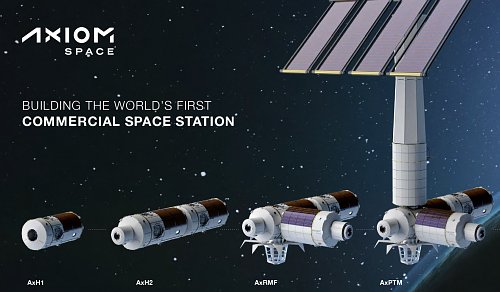SpaceX to launch another secondary private stock sale, hints at going public
UPDATE: Elon Musk has posted on X that this story is “not accurate.”
According to reports yesterday, SpaceX is about to launch another secondary private stock sale that double the value of the company.
Elon Musk’s SpaceX, is initiating a secondary share sale that would give the company a valuation of up to $800 billion, The Wall Street Journal reported Friday.
SpaceX is also telling some investors it will consider going public possibly around the end of next year, the report said.
At the elevated price, Musk’s aerospace and defense contractor would be valued above ChatGPT maker OpenAI, which wrapped up a share sale at a $500 billion valuation in October.
At $800 billion, SpaceX would be the world’s most valuable private company.
As for going public, nothing is confirmed. Musk has made some comments suggesting he is considering the idea, but at the same time has noted the problems such a act would cause him.
Musk recently discussed whether SpaceX would go public during Tesla’s annual shareholders meeting last month. Musk, who is the CEO of both companies, said he doesn’t love running publicly traded businesses, in part because they draw “spurious lawsuits,” and can “make it very difficult to operate effectively.”
It seems to me it would be a big mistake for Musk to do this. As a public stock-trading company, Musk would lose the freedom he presently has with SpaceX.
Meanwhile, this new private stock offering has done wonders for the value of Echostar’s stock, now that the company’s own stake in SpaceX after selling it some of its FCC licensed spectrum.
UPDATE: Elon Musk has posted on X that this story is “not accurate.”
According to reports yesterday, SpaceX is about to launch another secondary private stock sale that double the value of the company.
Elon Musk’s SpaceX, is initiating a secondary share sale that would give the company a valuation of up to $800 billion, The Wall Street Journal reported Friday.
SpaceX is also telling some investors it will consider going public possibly around the end of next year, the report said.
At the elevated price, Musk’s aerospace and defense contractor would be valued above ChatGPT maker OpenAI, which wrapped up a share sale at a $500 billion valuation in October.
At $800 billion, SpaceX would be the world’s most valuable private company.
As for going public, nothing is confirmed. Musk has made some comments suggesting he is considering the idea, but at the same time has noted the problems such a act would cause him.
Musk recently discussed whether SpaceX would go public during Tesla’s annual shareholders meeting last month. Musk, who is the CEO of both companies, said he doesn’t love running publicly traded businesses, in part because they draw “spurious lawsuits,” and can “make it very difficult to operate effectively.”
It seems to me it would be a big mistake for Musk to do this. As a public stock-trading company, Musk would lose the freedom he presently has with SpaceX.
Meanwhile, this new private stock offering has done wonders for the value of Echostar’s stock, now that the company’s own stake in SpaceX after selling it some of its FCC licensed spectrum.

